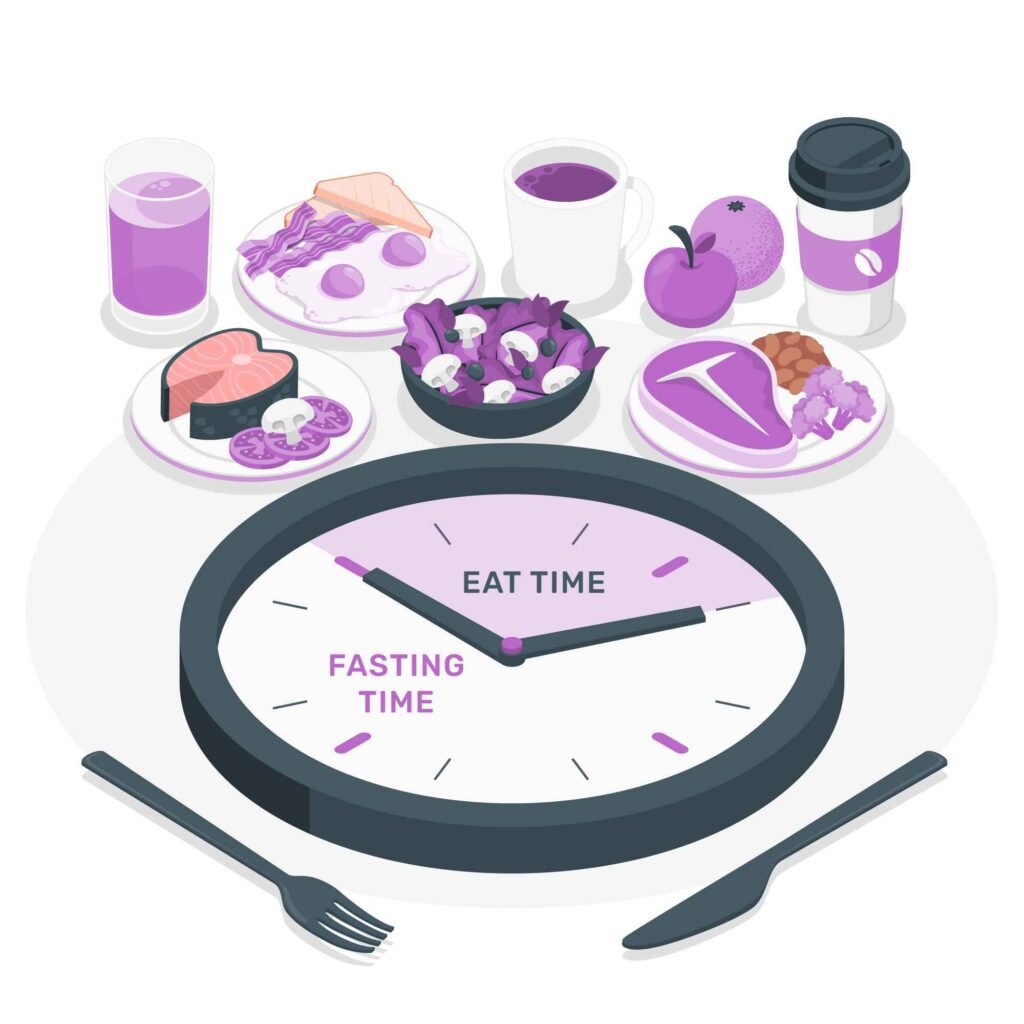
Preventing Chronic Diseases: Key Lifestyle Changes to Make Today
Imagine a life where chronic diseases aren’t inevitable. With heart disease, diabetes, cancer, and similar conditions on the rise, we’re often led to believe they’re just part of aging. But here’s the good news: simple lifestyle changes can significantly reduce your risk of developing these diseases. By making intentional choices in how you eat, move, and live, you have the power to create a future filled with vitality and health. This guide covers key lifestyle habits that can help prevent chronic diseases, empowering you to take control of your well-being today.
Understanding Chronic Diseases and Why Prevention Matters
Chronic diseases are long-lasting conditions that can be managed but not cured, requiring ongoing medical care and lifestyle adjustments. Conditions like heart disease, cancer, respiratory diseases, and diabetes are some of the most common chronic diseases worldwide. In fact, according to research, nearly 70% of global deaths each year are due to these diseases, many of which are preventable through healthy lifestyle changes.
The primary drivers of chronic diseases are risk factors that we often overlook in daily life: poor nutrition, lack of physical activity, tobacco use, and excessive alcohol consumption. By shifting daily habits, it’s possible to greatly reduce these risks, avoid major health complications, and enhance the quality of life well into the golden years.
1. Nourish Your Body with a Nutrient-Dense Diet
Eating a balanced, nutrient-rich diet is essential for chronic disease prevention. The foods you eat fuel every cell in your body, impacting energy levels, immune function, and long-term health.
- Whole Foods First: Prioritize fruits, vegetables, whole grains, lean proteins, and healthy fats. These foods are rich in vitamins, minerals, and antioxidants, which help combat inflammation—a key factor in chronic diseases.
- Cut Back on Processed Foods: Processed and refined foods, like sugary snacks and fast food, are high in unhealthy fats, salt, and sugar, which contribute to conditions like obesity, diabetes, and heart disease. Limit these as much as possible.
- Consider Proven Diets: Diets like the Mediterranean or DASH (Dietary Approaches to Stop Hypertension) diet focus on whole foods, lean proteins, and healthy fats and have been shown to reduce heart disease and diabetes risk.
Tip: Start small by adding a serving of vegetables to each meal or swapping sugary drinks for water or tea.
2. Make Physical Activity a Daily Habit
Exercise is one of the most effective ways to maintain a healthy body weight, reduce stress, and improve cardiovascular health, all of which are crucial in preventing chronic diseases.
- Aim for 150 Minutes Per Week: The CDC recommends at least 150 minutes of moderate-intensity aerobic activity, such as brisk walking or cycling, each week. If this seems daunting, remember that it can be split into smaller sessions throughout the week.
- Strength Training Matters: Adding strength training exercises, like lifting weights or bodyweight exercises, twice a week helps build muscle and protect bone health, which is particularly important as we age.
- Incorporate Movement Throughout the Day: Even if you have a busy schedule, try to add small bursts of activity throughout your day. Take the stairs, go for a short walk during breaks, or do some light stretching.
Tip: Find activities you enjoy—whether it’s dancing, gardening, or swimming—to make exercise feel less like a chore.
3. Avoid Tobacco and Limit Alcohol Intake
Tobacco use is one of the most significant risk factors for chronic diseases, especially for conditions like lung cancer, heart disease, and chronic obstructive pulmonary disease (COPD). Similarly, excessive alcohol intake increases the risk of liver disease, certain cancers, and high blood pressure.
- Quit Smoking: If you’re a smoker, quitting is the best choice you can make for your health. Resources like support groups, nicotine replacement therapy, and counseling can provide support on your quitting journey.
- Drink in Moderation: For alcohol, moderation is key. Aim for no more than one drink per day for women and two for men to reduce health risks associated with excessive drinking.
Tip: For smokers, start with small goals like reducing the number of cigarettes each day, or join a “quit-smoking” community to share progress and setbacks with others on the same path.
4. Make Regular Health Screenings a Priority
Preventive healthcare can catch potential health issues before they turn into severe conditions. Screenings like blood pressure checks, cholesterol tests, and cancer screenings allow for early detection and timely intervention.
- Annual Physical Exams: These check-ups often include screenings for blood pressure, cholesterol levels, and diabetes risk.
- Cancer Screenings: Depending on age and risk factors, your doctor may recommend screenings such as mammograms, colonoscopies, or skin checks. Early detection often means more effective treatment options.
- Dental and Vision Check-Ups: Oral health is closely linked to overall health, and regular dental visits can help prevent gum disease and tooth decay, which are risk factors for heart disease.
Tip: Keep a health calendar to remind you of annual screenings, vaccinations, and check-ups.
5. Get Quality Sleep and Manage Stress Effectively
Sleep and stress management are often overlooked but play a vital role in reducing the risk of chronic diseases. Sleep is essential for physical recovery, while chronic stress can lead to inflammation, a key factor in heart disease and other chronic conditions.
- Prioritize Sleep Hygiene: Aim for 7-9 hours of quality sleep each night. To improve sleep, try going to bed at the same time every night, creating a calming bedtime routine, and keeping the bedroom cool and dark.
- Practice Relaxation Techniques: Meditation, deep breathing exercises, and yoga are effective ways to manage stress and reduce anxiety, helping to lower blood pressure and boost mood.
- Limit Screen Time Before Bed: The blue light from phones, computers, and TVs can interfere with the body’s natural sleep hormone, melatonin. Try to switch off electronics an hour before bed.
Tip: Keep a journal to identify stress triggers and work on strategies for managing them.
6. Build and Maintain Strong Social Connections
Strong social relationships are not just good for the soul—they’re also good for your health. Studies show that people with strong social ties have a lower risk of chronic conditions like heart disease and depression.
- Stay Connected: Make time for family and friends, even if it’s just a quick phone call or a coffee date. Social interaction boosts mental health and provides emotional support.
- Join Community Groups: Volunteering, joining a club, or attending group fitness classes are great ways to meet new people and reduce feelings of loneliness or isolation.
- Stay Active Together: Social connections can also help with accountability. Try setting up regular exercise dates with friends to make fitness more enjoyable.
Tip: Set small social goals each week, such as attending one group activity or reaching out to an old friend.
Addressing Social Determinants of Health
Social determinants like access to healthcare, nutritious food, and safe spaces for exercise play a large role in chronic disease risk. If you lack access to some resources, look into community programs or health organizations that can provide support.
- Community Resources: Many areas offer programs that provide access to nutritious foods, mental health support, and fitness opportunities.
- Public Health Programs: Check if there are local or government initiatives that can help with preventive care and screenings.
- Build Awareness: Advocate for policies that make healthy living accessible to everyone, regardless of income or location.
Conclusion: Taking Action Today for a Healthier Tomorrow
Preventing chronic diseases doesn’t require drastic changes. Start small—replace a sugary snack with a piece of fruit, go for a 15-minute walk, or book a check-up. These actions may seem minor, but they accumulate over time, creating a ripple effect that leads to a healthier, longer life. Each positive choice you make today builds a foundation for future well-being.
Taking control of your lifestyle is a powerful way to shape your health and longevity. By embracing these small changes, you’re investing in a future filled with energy, vitality, and resilience.



